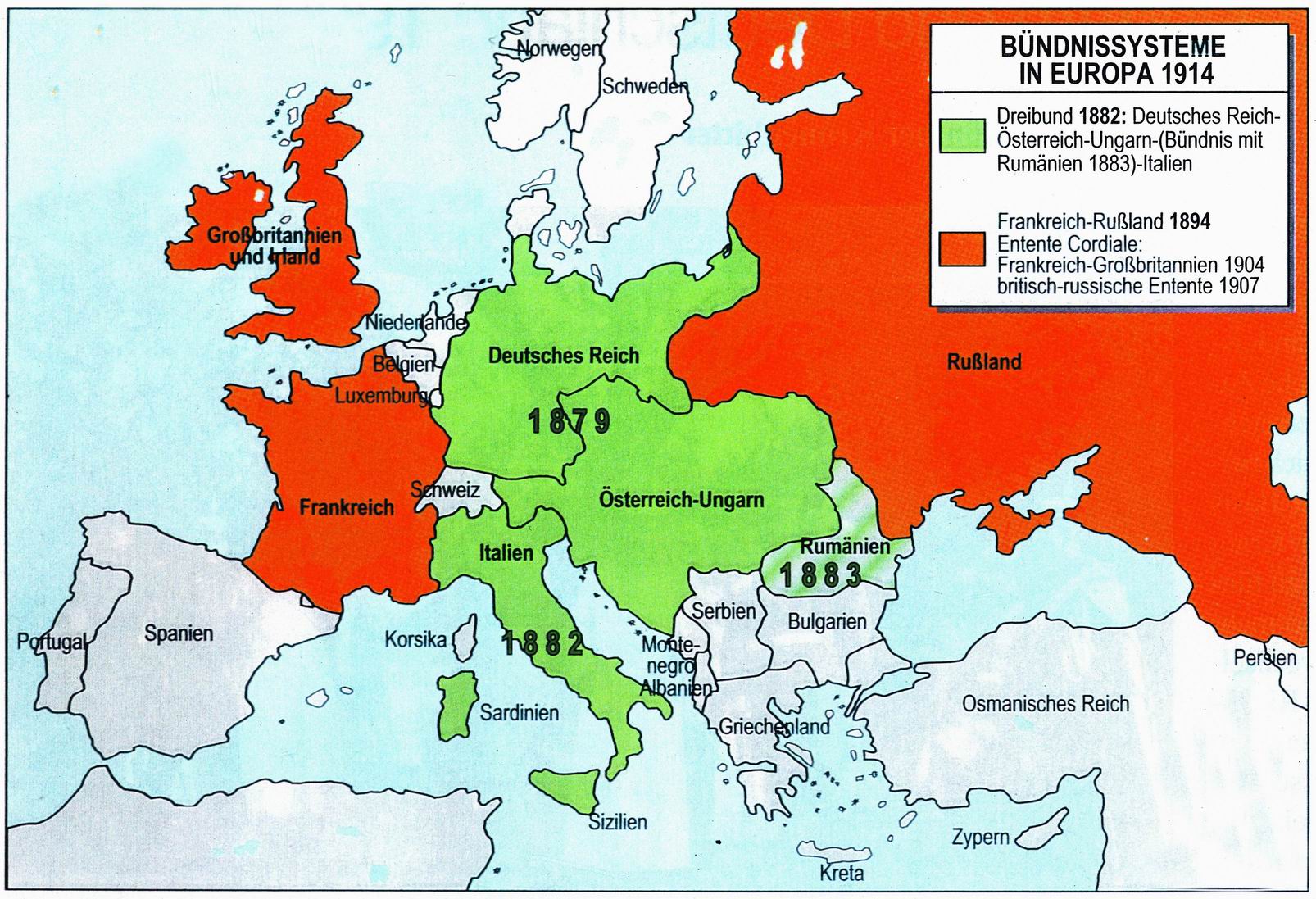Europe around 1900 had formidable economic growth and industrial development. The first planes had already taken off. The bicycle became fashionable while the car remained a luxury. The work was facilitated by the introduction and use of new appliances. The houses, for example, were equipped with sewing machines. In the office work there was a typewriter and a telephone. The wealthiest lived what was called “La Belle Epoque”.
Before the war in Europe, a minority held power and money, Socialist parties were born that took a large number of consents, proposing reforms based on a more balanced division of wealth. The workers tended to unite to improve their living and working conditions.
At the beginning of the 20th century, comfort and life were improved thanks to technological, scientific and industrial advances. you moved by car or bicycle, the food was richer and more varied … Europe dominated the world. France, Great Britain and Germany wanted to be ever more powerful and to respond to their needs in the raw material and to show their strength, they conquered and divided territories such as Africa, India and Oceania.
To make their industries work more and more, they needed raw materials, which were missing and which they obtained elsewhere, such as rubber, sugar, cotton and vegetable oils. They sent soldiers, traders and missionaries to their conquered colonies at the other end of the world, who by force subdued the populations believed to be inferior, under the pretext of bringing civilization. the French had colonies in Indochina, North Africa; the British in India, Egypt and Southern Africa, the Dutch in Indonesia … Russia was satisfied with its immense territory, as far as Germany lacked colonial possessions. For large nations, foreign territories were not only a resource of wealth but a sign of power and in case of conflict, excellent sources of strategic positions. Each envied the position of the other.
Each nation thought that the other envied its prosperity. Everyone believed they were surrounded by enemies. The school taught love and the sense of duty for the homeland.
For the French, the danger came from the East. The Germans cultivated fear for the Slavs. The Russians feared the Germans and the Orientals. While the Italians distrusted the Austrians … To protect their common interests, these nations created alliances. Germany, Austro-Hungary and Italy formed the Triple Alliance. France, Great Britain and Russia the Triple Agreement.
The outbreak of war
In 1914, the situation in Europe was very tense. The assassination of Archduke Francis-Ferdinand, heir to the Austro-Hungarian throne, and his wife in Sarajevo was the spark that exploded. For Austro-Hungary it was an opportunity to settle accounts with Serbia. While Germany supported the Austro-Hungarian position, Russia intended to defend Serbia. The covenant gear was set in motion. The war that had been brewing for many years broke out.
The year of blood
The order was to go on the assault, you had to climb the ladder, to get over the parapet, come out into the open, throw yourself under the barbed wire that protected the enemy trenches. the lucky ones had pliers to cut the iron wire. In front, the machine guns went into action and many men fell before reaching the barbed wire. Those who did, jump into the adverse trenches, leaving their bulky rifles to fight with their headstock or dagger.
The fronts are consolidated and the mine war begins
1 January: 1st mine on Lagazuoi (Austrian) (300 kg of explosive)
21 February: Fire of Ciadin de Sote (from the Cadin di Sotto village).
17 April: Italian mine on Col di Lana: 105 m. Long tunnel, 90 m. deep, loaded with 524 kg of explosive gelatin
Winter with 9 meters of snow many avalanche victims.
The mine war continues
The schematic arid news on the operations obviously cannot give an idea of the attacks on the white weapon, of the lonely lookout nights at almost 3000 m in winter at 30 degrees below zero in the blizzard, of the anguish in the trenches in the rain of the grenades during a bombing, the unsustainable wait before the mine burst under his cave.
Collapse of the Empires
After the battles of the Piave and Monte Grappa and Vittorio Veneto.
October 25: The Austrian retreat begins in Ampezzo; it follows the chaos of thousands of fleeing soldiers, of vehicles overloaded with torn and hungry soldiers, the passage of stragglers without discipline.
November 4: The war ends. Armistice of Villa Giusti between Italy and Austria.
November 7: Two Italian officers arriving in the car arrive in Cortina; troops reoccupy the country on day 10; once again there are no celebrations; too many victims and too many disasters prevented demonstrations of jubilation.
2020 Ⓒ Museo della Grande Guerra "Tre Sassi" Cortina d'Ampezzo





